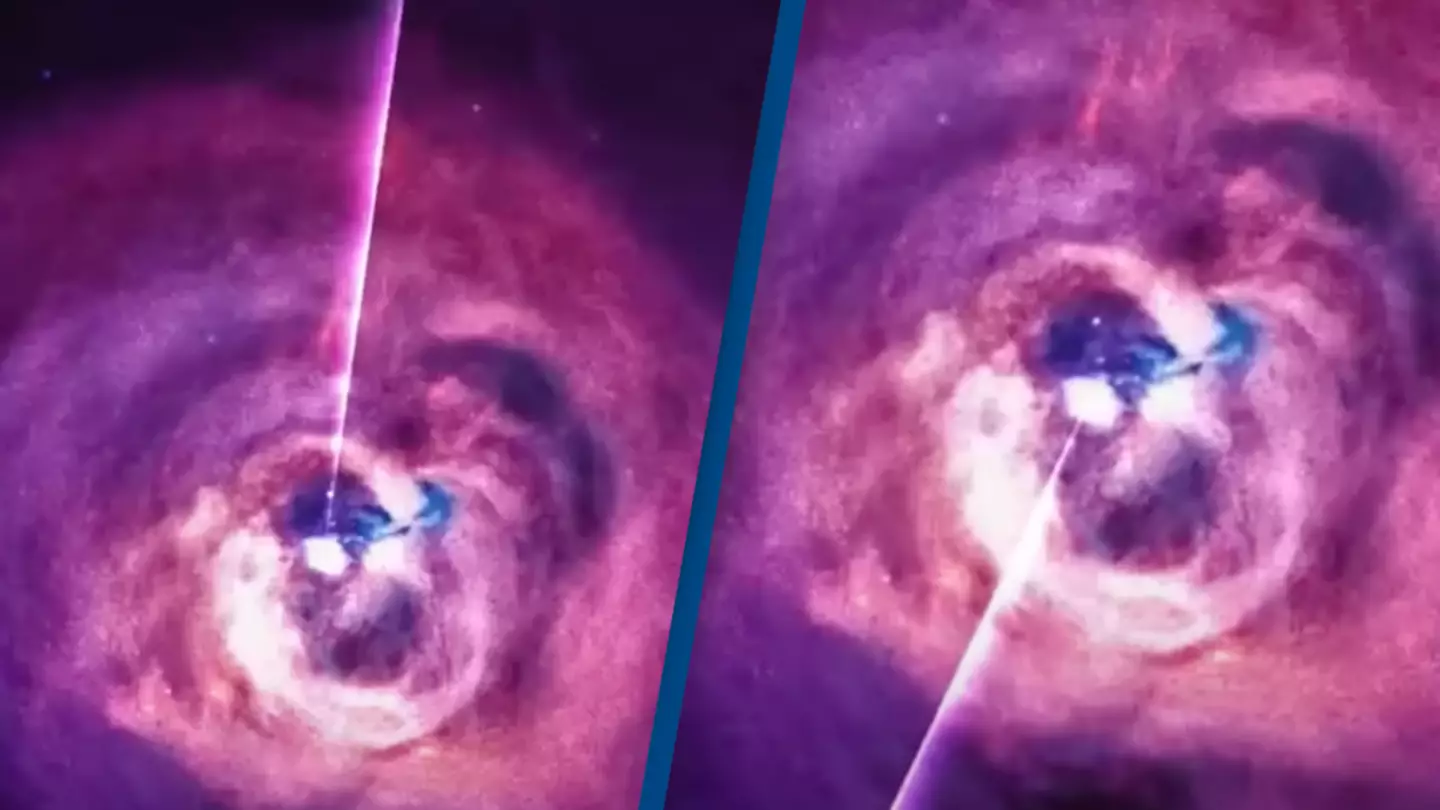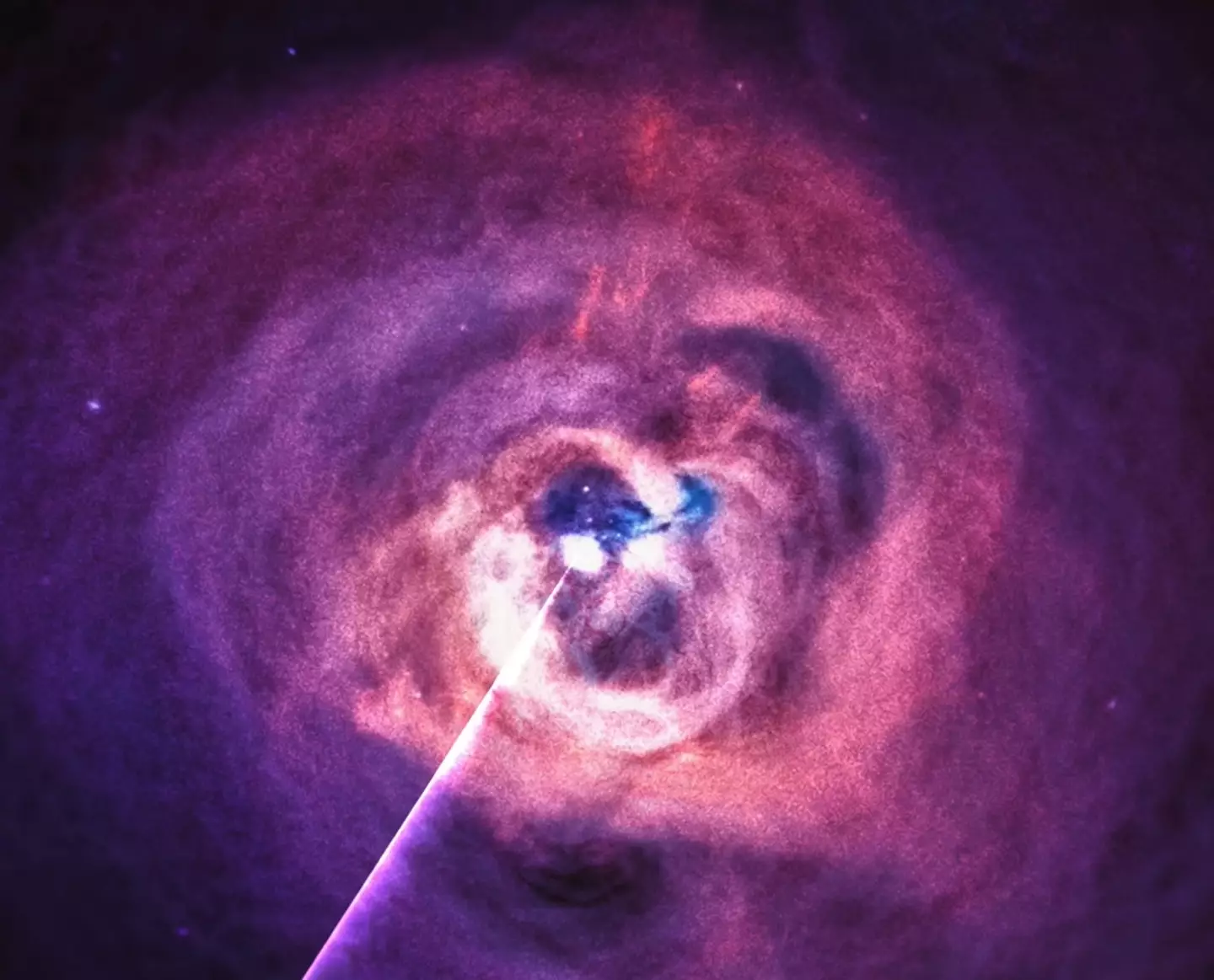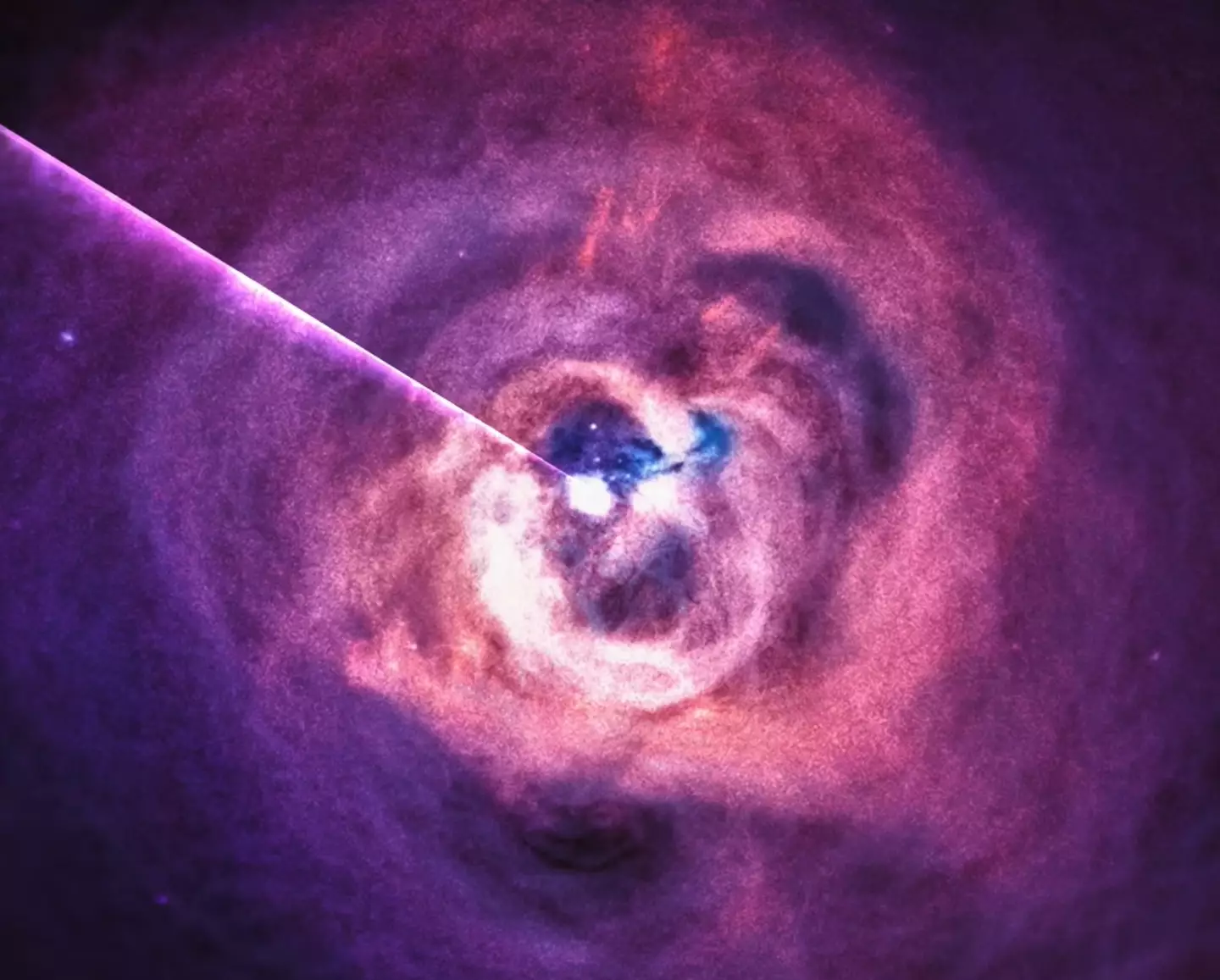
NASA have managed to record the sounds of a black hole which lies at the heart of a cluster of galaxies.
You might think that black holes make no noise because sound can't travel through space and normally, you'd be correct as sound certainly cannot travel through a vacuum.
However, according to NASA, a galaxy cluster such as the one in the constellation Perseus is enveloped by so much gas that sound waves can travel through it.
That's pretty handy for astronomers who identified sound waves from the cluster and subjected them to something called 'sonification', which means using non-speech sound to convey information or give a new perspective on data.
Advert
However, lots of work went into making the sound waves of Perseus audible to human ears as the soundwaves are 144 quadrillion (that's 15 zeroes) and 288 quadrillion times higher than their original frequency to get them into the range of human hearing.
With the sound waves from the black hole at the center of the constellation made audible you can now have the incredible chance to hear noises from 250 million light years away, which is pretty heckin' cool.

According to NASA, while light cannot escape from a black hole as it sucks in and devours all, the material around it can produce bursts of electromagnetic radiation which travel out and can bounce off clouds of gas.
Advert
These create 'light echoes' and experts can turn those into notes which the human ear can hear and thus a black hole can become a musical instrument, albeit one that plays itself by sending out waves.
NASA has released plenty of information on black holes over the years and laid out the scale for the gargantuan size that some of them can reach.
Some of them can be 60 billion times the mass of the sun which sits at the heart of our solar system.
There are as many as 10 million to a billion black holes in our own galaxy, the Milky Way, though only one of ours is of truly monstrous proportions.

However, even a small one would be enough to ruin everyone's day if it was close enough to our planet.
Advert
Scientists simulated what a nine millimetre black hole would do if it was near Earth, and to start off with such a tiny thing would have the same mass as our entire planet.
If close enough to the Earth the tiny black hole would be strong enough to rip 'large chunks' of the planet away in a process known as 'spaghettification', meaning those big chunks would be stretched out long and thin the closer it got to the black hole.
As you might have guessed that'd be the end of humanity if such a thing were to happen, so let's be glad we're not sharing a solar system with a black hole.
Topics: NASA, Space, Technology, Science